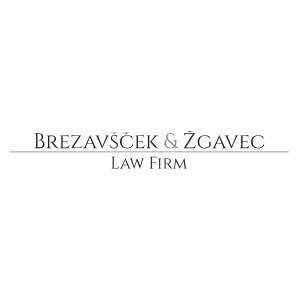Best Oil, Gas & Energy Lawyers in Slovenia
Share your needs with us, get contacted by law firms.
Free. Takes 2 min.
Or refine your search by selecting a city:
List of the best lawyers in Slovenia
About Oil, Gas & Energy Law in Slovenia
The field of oil, gas, and energy in Slovenia is situated within a unique European context where there is an increasing push towards sustainability and renewable energy sources. Slovenia, while not a major producer of fossil fuels, has a vibrant energy sector mainly based on its hydropower, thermal power, and a growing commitment to solar and wind energy. Oil and gas have historically been imported and the emphasis is now shifting towards energy security and green initiatives.
Due to its commitment to the European Union’s growth and sustainability targets, Slovenia's legal framework around oil, gas, and energy is comprehensive and closely aligned with EU directives and regulations. This situation brings a complex mix of local and international laws, making legal expertise in this area particularly crucial.
Why You May Need a Lawyer
There are numerous situations where legal assistance might be essential in the oil, gas, and energy sectors in Slovenia:
- Licensing and Permits: Navigating the process for obtaining necessary permits and licenses for exploration and production.
- Environmental Compliance: Ensuring that energy projects comply with local and EU environmental regulations.
- Contract Drafting and Negotiation: Developing and reviewing contracts focused on joint ventures, partnerships, and sales agreements.
- Dispute Resolution: Addressing conflicts that arise between stakeholders, landowners, and government entities.
- Regulatory Guidance: Staying informed on changes in regulations and how they impact business operations.
- Investment and Finance: Facilitating energy project financing and understanding investment opportunities and risks.
Local Laws Overview
The Slovenian legal system as it relates to oil, gas, and energy is influenced heavily by EU regulations. Below are some of the key aspects:
- Energy Act: Focuses on the liberalization of the energy market and ensures a competitive market environment.
- Environmental Protection Act: Provides regulations for environmental protection, essential for energy projects.
- Renewable Energy Regulations: A suite of laws promoting the use of renewable energy consistent with Slovenia's green energy objectives.
- Mining Act: Governs the exploration and exploitation of mineral resources, including oil and gas.
- Safety and Health at Work Act: Establishes the standards for security and safety in hazardous environments typical for the energy sector.
Frequently Asked Questions
What are the basic steps to start an energy project in Slovenia?
You need to conduct feasibility studies, seek environmental clearances, obtain necessary permits, and ensure compliance with local laws.
Are there incentives for renewable energy initiatives in Slovenia?
Yes, Slovenia offers various incentives, including subsidies, tax benefits, and support schemes for renewable energy projects.
How is the Slovenian energy market structured?
The market is liberalized, promoting competition, with legislation in place to ensure transparency and fair access for all players.
What is Slovenia’s stance on oil exploration?
While Slovenia allows oil exploration, there is a strong shift and governmental support towards renewable energy sources.
Do I need a local partner for energy projects in Slovenia?
While not legally required, partnering with local entities can provide insight into market operations and facilitate smoother project execution.
How does Slovenia ensure compliance with EU energy regulations?
Slovenia actively aligns its national legislation with EU directives and actively participates in EU programs and initiatives.
What are the key legal considerations for energy imports?
Complying with EU protocols for cross-border energy trade, customs regulations, and bilateral trade agreements is crucial.
Can foreign companies invest in Slovenia’s energy sector?
Yes, Slovenia welcomes foreign investments, and there are no significant restrictions for international companies.
How are energy disputes typically resolved?
Disputes may be resolved through negotiation, arbitration, or the judicial system, with a strong preference for mediation and settlement.
What role do government agencies play in Slovenia's energy sector?
Government agencies regulate, monitor compliance, provide incentives, and ensure alignment with national and EU energy policies.
Additional Resources
For further assistance, consider reaching out to these resources:
- Ministry of Infrastructure: The primary governmental body for energy policy and regulation.
- Energy Agency of the Republic of Slovenia: Regulates the energy sectors, particularly electricity and gas.
- Chamber of Commerce and Industry of Slovenia: Provides support and networking opportunities for businesses entering the energy sector.
- Slovenian Environment Agency: Offers guidance and services related to environmental regulations.
- European Union Energy Portal: Offers detailed information on EU energy policies applicable to Slovenia.
Next Steps
If you require legal assistance in the oil, gas, and energy sectors in Slovenia, consider taking the following steps:
- Consult with a legal expert specializing in Slovenian energy law to understand your specific needs and requirements.
- Reach out to relevant government departments and regulatory bodies for guidance and support on compliance and regulations.
- Engage with industry bodies or chambers of commerce for advice on market conditions and networking opportunities.
- Review relevant laws, regulations, and any recent changes affecting the Slovenian energy sector to keep informed.
Lawzana helps you find the best lawyers and law firms in Slovenia through a curated and pre-screened list of qualified legal professionals. Our platform offers rankings and detailed profiles of attorneys and law firms, allowing you to compare based on practice areas, including Oil, Gas & Energy, experience, and client feedback.
Each profile includes a description of the firm's areas of practice, client reviews, team members and partners, year of establishment, spoken languages, office locations, contact information, social media presence, and any published articles or resources. Most firms on our platform speak English and are experienced in both local and international legal matters.
Get a quote from top-rated law firms in Slovenia — quickly, securely, and without unnecessary hassle.
Disclaimer:
The information provided on this page is for general informational purposes only and does not constitute legal advice. While we strive to ensure the accuracy and relevance of the content, legal information may change over time, and interpretations of the law can vary. You should always consult with a qualified legal professional for advice specific to your situation.
We disclaim all liability for actions taken or not taken based on the content of this page. If you believe any information is incorrect or outdated, please contact us, and we will review and update it where appropriate.
Browse oil, gas & energy law firms by city in Slovenia
Refine your search by selecting a city.

















